You are Worthy of Love and Belonging
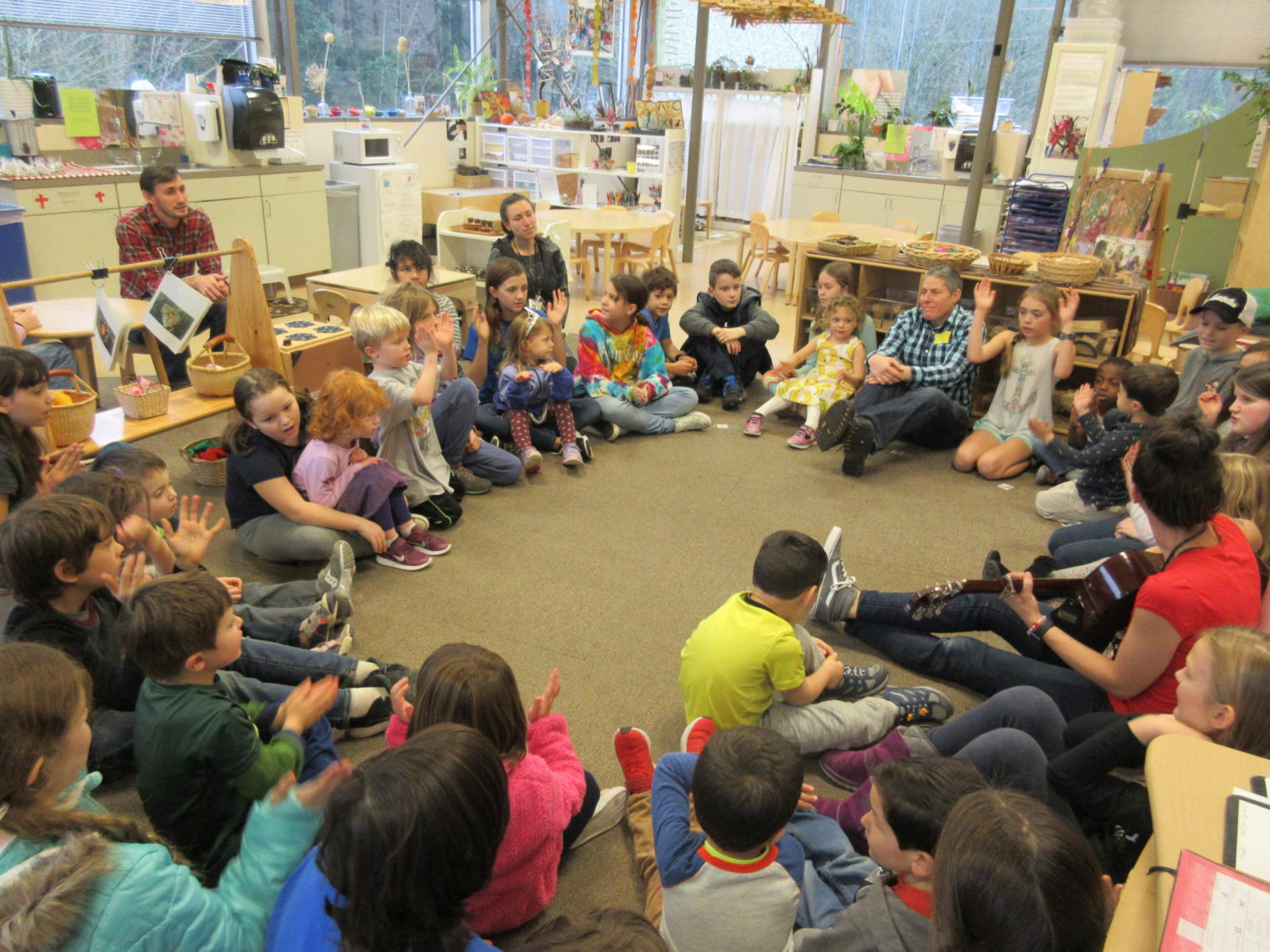
I listened to This American Life’s episode, Three Miles, earlier this week – and I can’t get it out of my head. Here’s the synopsis from the episode webpage:
There’s a program that brings together kids from two schools. One school is public and in the country’s poorest congressional district. The other is private and costs $43,000/year. They are three miles apart.
One of the students who attended the public school was interviewed by Chana Joffe-Walt several years after graduation. He was a student that had been awarded the prestigious Posse Scholarship and he had this to say about his experience:
Jonathan Gonzales: I think it was a Friday. I think it was a Friday they gave me– that I had the letter in the mail from Wheaton. My main thing was, who am I to be accepted into a college?
Chana Joffe-Walt: Wait. That was your first thought?
Jonathan Gonzales: Yeah.
Chana Joffe-Walt: Did you have any moment of, this is great, I got into college?
Jonathan Gonzales: No, I was scared.
Chana Joffe-Walt: You skipped right past excitement?
Jonathan Gonzales: Yeah. There was no real excitement. I was just like, all right, so now what?
Chana Joffe-Walt: Did something change from November to whenever you arrived at college where you started to feel like, OK, I’m a person who goes to college?
Jonathan Gonzales: I can’t really say, yes, you know? Because at the core, I still didn’t feel like I was worthy. And when I got to college, it showed.
Jonathan did not graduate from Wheaton and he still does not have a college degree. We know that an overwhelming number of talented people from poor neighborhoods in under-resourced public schools do not graduate from college once they have started. According to a study done by the Department of Education, Exceptionally smart poor kids, whose math scores ranked them among the top quarter of the study’s participants, were no more likely to attain a bachelor’s degree than scholastically middling rich kids. (Source: Slate)
And
Here’s another startling comparison: A poor teenager with top scores and a rich teenager with mediocre scores are equally likely to graduate with a bachelor’s degree. In both groups, 41 percent receive a degree by their late 20s.
And even among the affluent students with the lowest scores, 21 percent managed to receive a bachelor’s degree, compared with just 5 percent of the poorest students. Put bluntly, class trumps ability when it comes to college graduation. (Source: New York Times)
Jonathan seems to have some insight about this: I still didn’t feel like I was worthy. Who am I to be accepted into a college?
One of Johnthan’s peers, Raquel, who is also interviewed for the Three Mile story, said this about her first encounter with the private school three miles from her own school: This is what freedom looks like. We must not deserve to be free.
And another exceptional student from the public school had this to say about her initial experience:
This is something that only privileged or the elite can have. I know I looked at it and I said, well, I know that we’re only being taught to flip burgers in Burger King or McDonald’s or to hold doors for students like them that will probably live in those buildings on Madison Avenue. And we’ll be wearing the uniform servicing these people.
These students had crossed over the achievement gap. Public school had worked for them in all the ways that the world demands it should. But nowhere had these students learned that they had a right to the rewards they’d been taught to want. Without a clear sense of belonging to the world outside their neighborhood, they found out in the most heartbreaking way that their efforts were built on false promises. We set the bar high, we peddle the value of “grit”, and while they faithfully hold up their end of the bargain we argue over who and what to blame when they don’t make it to the goal. The energy we spend cultivating and dangling carrots and arming ourselves with sticks (in response to policy decisions largely influenced by the testing industry) creates smoke that obscures other influences. If students take their eyes off the prize for one moment, those sticks and carrots are there to get them back in line – so they don’t have time to ask hard questions about why things are the way they are, or to find out that they can ask questions, or that they have a right to ask questions, and that what they’re noticing is real.
We notice it, too.
And that it’s true that it’s not fair.
Raquel, who attended Bard College and represents the 41% of the statistical cohort who graduates, reflects on the reality of these challenges as she entered the professional workforce:
Even though I got my foot in the door by having a good resume and maybe giving a good phone interview, when I get in there, I’m like, I don’t deserve this. It’s not– the pay grade salary was above what I deserve. This is more money than either of my parents have ever made, probably.
And those things go through my mind when I’m walking into a place that I’m trying to apply for work. And so how could you convince somebody that you deserve it when you don’t even believe it yourself? It’s like a recurring theme in my life. I have to tell myself that I deserve this because I work really hard for it.
Where do children learn to believe that they aren’t worthy of access to freedom? Where do they get the idea that they don’t belong in what seem to be natural habitats for others?
When you can’t drink the water in the school the world assigns you to, you can’t grow up assuming the world wants you to be healthy. When you can’t rely on heat in your classroom you can’t grow up assuming the world cares about you. When your president tells you you don’t belong here, it becomes extra hard to believe that you do.
Children deserve the highest quality a society has to offer not only because they have a basic right to quality, but even more so because they are fully aware society offers them just exactly as much as it thinks they are worth. What society offers them is what they learn to believe they have a right to. Children deserve the highest quality a society has to offer because it is the only way to ensure that we develop a quality and democratic society.
Let’s seize this moment of heightened awareness to share widely what it looks like to create environments and experiences for all children that intentionally contradict the messages they are receiving from their society and welcome them into a world we’ve developed just for them. It’s a world where we want to hear their stories, where they can ask questions, where they can exercise their imaginations and where we’ll ask them to tell us how they feel. It’s a world where we’ll validate their experiences and help them learn to listen and connect and be curious about the experiences of others. It’s a world where we’ll give them ample opportunity to create solutions. And it’s a world where we’ll help amplify their ideas, and offer them resources intended to strengthen them.
In their essay in The Teacher You Want to Be, Peter Johnston and Gay Ivey argue that getting caught up in the tensions that arise as teachers navigate between the social and emotional and creative well being of children and their academic achievement means getting caught in a false choice. “You can have your cake and eat it, too,” they say. Raquel and her peers tell stories about their experiences in a system that insists children make the cake, but won’t let them eat it and instead blames them because they don’t have a fork.
Here are some images of what it looks like when school shows you and tells you that you are worthy of love and belonging:
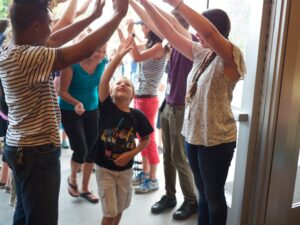
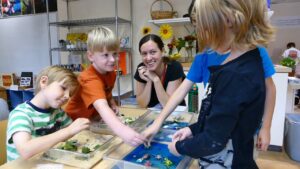
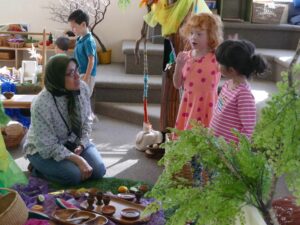
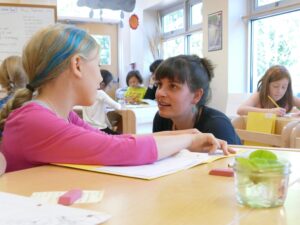
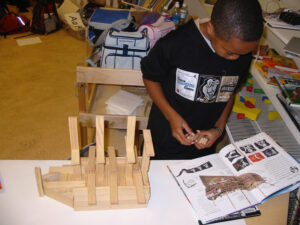
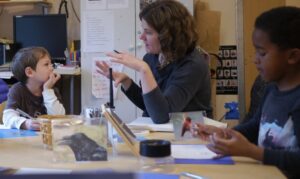
And some recent stories from our school that discuss creating conditions of a sense of worth and belonging:
- Exploring the “We That I Am” Through Character
- When I feel sad sometimes I get angry
- Going to Materials
- Valuing differences through Brain Buddy work
- Making 1 from 20
I’d love to hear from you, dear reader:
What are you doing to contradict the messages society is sending to your children about the value they hold in our communities?
What does resistance look like on behalf of our youngest citizens?
What inspiration and hope do you have to share?
